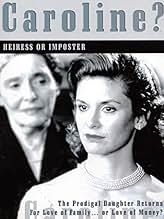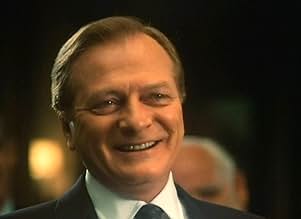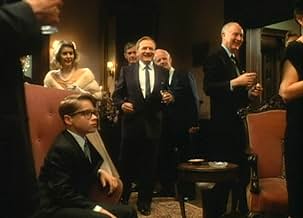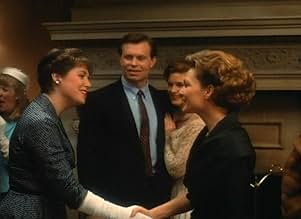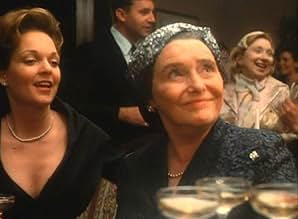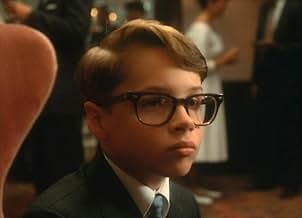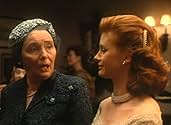Did the author of the book on which this movie is based actually win a Newbery? I can understand why, without ever having read it. The movie is like an above average after-school special. There are two equally important themes dealt with. (1) Is Stephanie Zimbalist really the Caroline who disappeared fourteen years earlier, or an imposter come to claim the matriarch's fortune? In the end, it becomes a matter of little importance (and in fact has been done better elsewhere) except that the lingering questions trigger fits of jealousy and rivalry on the part of Pamela Reed as Caroline's stepmother. (2) Is little Hillary (whom her parents call Heidi) as retarded as she seems or is she educable? Before "Caroline"'s arrival, a family therapist would immediately recognize Heidi as the "identified patient," the glue that holds the rest of the family together because of her disability. In giving all their attention to Heidi, the other family members can avoid dealing with deeper and potentially more disturbing issues, like "Who's giving the orders around here"? To deprive the other members of Heidi's affliction is like suddenly restoring the use of his legs to a man who has been a paraplegic for years and has managed to adjust to his condition, however precarious that adjustment may be. Yet this is precisely what Caroline threatens to do, when she discovers that Heidi has remained a "baby", as she calls herself, through the simple process of having always been treated as one. Her parents and brother have convinced themselves that Heidi will never be able to read or even perform simple tasks like removing her own coat. Under Caroline's compassionate tutelage, however, she begins to do exactly that, which threatens the dynamic underpinning of the family. Caroline brings discord to a barely functioning family, but it is the sort of pain that is necessary for one to undergo in order to remove an abcessing tooth. The story is interesting and, for the perceptive, those looking for more than just another mystery, kind of educational as well. Of course, all ends happily, with Heidi (a name for a little Swiss girl) evolving into Hillary (a name that now has acquired Senatorial resonance). The performances are all quite good. Pamela Reed, the putative villain of the piece, is not without sympathy. George Grizzard is likeable, as always, even when his character is dubious. Stephanie Zimbalist often seems to bring, willy nilly, a certain devious sensuality to her roles. That quality must be noted in anyone who can inspire incestuous urges in somebody like Charlton Heston. Here, it's muted, and most of the time she seems like just a nice young woman trying to do something good. I have no idea if Jenny Jacobs, playing Heidi, suffered from a neurological deficit, but whether she did or not makes no difference; her enactment of the character would be hard to improve upon. Sometimes the dialogue is a bit new-agey, especially towards the end -- "You can be whoever you want to be" or something. What on earth does that mean? (I'd like to be King Farouk.) But it's a minor weakness in an otherwise superior TV movie.


